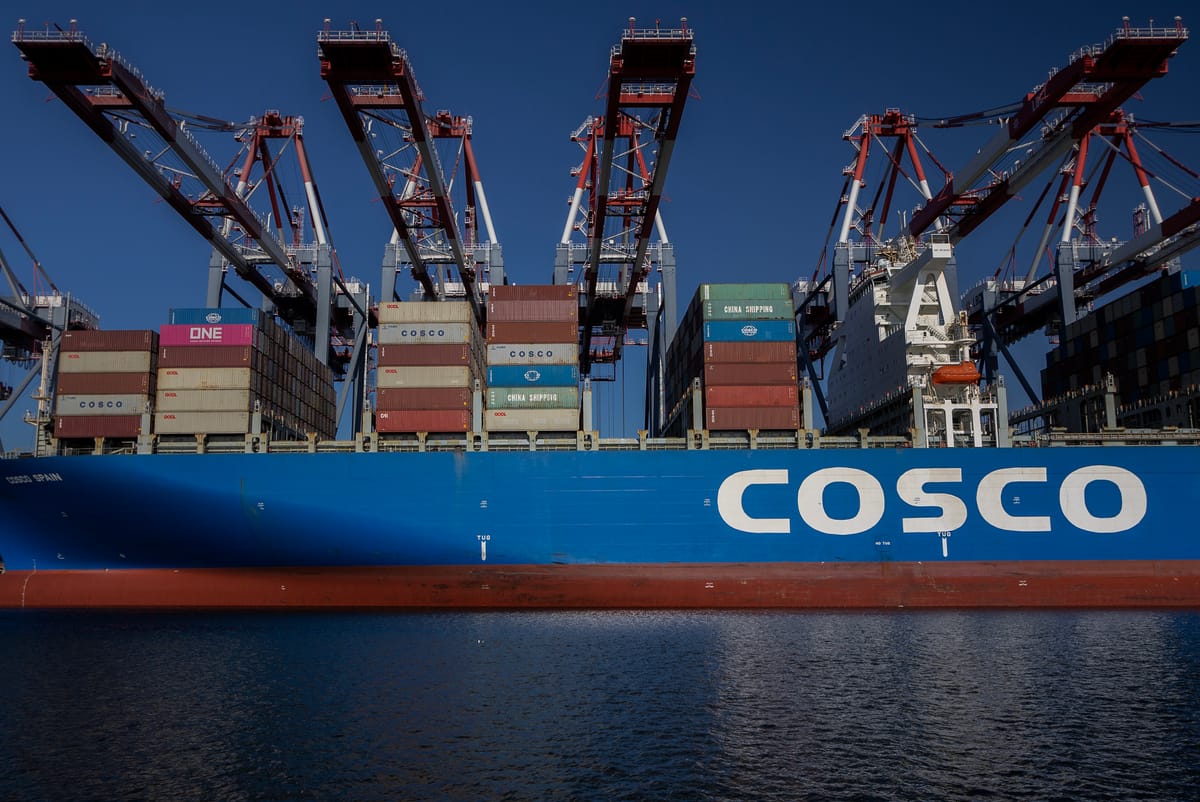East, Gulf coast dockworkers on strike for 1st time in nearly 50 years; Long Beach, LA port officials hope for speedy resolution
Tens of thousands of dockworkers walked off the job Tuesday, leaving billions of dollars of goods in limbo. West Coast ports say they are ready for more cargo.

Billions of dollars worth of consumer goods are stuck in limbo after tens of thousands of East and Gulf coast dockworkers walked off the job Tuesday for the first time in nearly 50 years.
The ports move about half of the containerized goods moving in and out of the U.S. The economic impact of the strike could be upward of $4.5 billion per day, according to a report from JPMorgan senior equity analyst Brian Ossenbeck.
Since June, the International Longshoremen's Association, which says it represents 50,000 East and Gulf coast dockworkers under the now-expired contract, and the U.S. Maritime Alliance, or USMX, an organization made up of shipping companies, terminal operators and port authorities, have been in a stalemate amid contentious contract negotiations.
"We are prepared to fight as long as necessary, to stay out on strike for whatever period of time it takes, to get the wages and protections against automation our ILA members deserve," long-time ILA President Harold Daggett said on Tuesday.
During an early morning interview with Fox’s Austin Westfall, maritime analyst Sal Mercogliano said that the USMX managed to put together a “really good” last-minute contract proposal that included a 50% pay bump over six years, tripling employer retirement contributions, better health care and concessions on automation.
“The ILA has been adamant that they really wanted this strike. They wanted to raise issues regarding the absolute amount of money the shipping companies have made,” Mercogliano said. “The seven shipping companies that are on the USMX board are all foreign owned, including one from the Chinese government. And ILA wants to raise this issue. They are doing it now. They want to get in the news cycle.”
Officials from the ports of Long Beach and Los Angeles, which combined make up the busiest port complex in the U.S., say they are ready for increased volumes but hope the labor dispute is resolved quickly.
Mercogliano and other experts say only a prolonged strike will have notable consumer impacts. Michigan State University professor Jason Million told the New York Times that he’s “not concerned from an inflationary standpoint.” Sevens Report analyst Tom Essaye wrote on Tuesday that any strike-related inflation would be a “temporary disruption.”
“There’s not going to be shortages on the shelves,” Mercogliano said. “We’re not going to see immediate shortfalls.”
“I think it’s really important at this point that everyone takes a step back and understands that a lot of the goods that you consume are already in the United States right now sitting in warehouses or even the stores,” he continued, adding that the ILA strike was not a surprise and companies front loaded cargo making for a busy September.
If the strike lasts a single day, Mercogliano said it would take about a week to reset the supply chain. But if the strike drags for a week or two, customers could begin to see thinning shelves at retailers such as Walmart.
Food and fuel supplies should not be impacted at all by the strike, Mercogliano added.
While the Biden administration has the power to force workers to resume moving cargo through the Taft-Hartley Act, the president has already signaled that he would not invoke the law.
"We encourage all parties to remain at the bargaining table and negotiate in good faith,” the Biden administration previously said.
Beginning with the coronavirus pandemic, the U.S. supply chain has been in a near constant state of strain. But the challenges have resulted in lessons learned, Mercogliano said, noting that shippers have diversified where their cargo comes from.
In addition to moving up the busy shipping season, many shippers also have shifted their cargo to the West Coast so as not to be impacted by the strike. The ports of Long Beach and LA move about 40% of the U.S.’s containerized goods and have been seeing record volumes.
“Our overflow site remains open and has space for surge capacity, and we are actively exploring sites for additional container storage within and outside the harbor,” Port of Long Beach CEO Mario Cordero said in a statement Tuesday, adding that officials remain in contact with its industry partners to “assess the situation and prepare to do our part to keep the national supply chain operational.”
In a statement Monday night, Port of LA spokesperson Phillip Sanfield said the U.S. economy needs all U.S. ports fully operational. Still, the port is handling record cargo volumes “efficiently” with no backlogs like those seen amid the pandemic.
Port of LA Executive Director Gene Seroka previously noted the long history of dockworkers from different unions pledging to never benefit from the others labor negotiations, which could lead to West Coast workers refusing to unload ships diverted from the East and Gulf coasts.
No ships headed originally slated to call at an East or Gulf coast port affected by the strike has been diverted to Los Angeles, Sanfield said, adding that there is “no evidence of labor disruptions on the West Coast.”
“Los Angeles has the capability to handle additional cargo,” Sanfield said. “We’re working with the Western railroads, terminal operators and our other stakeholders to efficiently process these robust volumes.”
While the San Pedro Bay ports and others along the West Coast are ready for an influx, Mercogliano noted that they simply cannot pick up all the slack from their counterparts should the strike last weeks.
“Hopefully, what we’ll see, maybe by the end of the week, is both sides will come together,” Mercogliano said, adding that the ILA wants to demonstrate its solidarity. “This is their moment.”
We need your support.
Subcribe to the Watchdog today.
The Long Beach Watchdog is owned by journalists, and paid for by readers like you. If independent, local reporting like the story you just read is important to you, support our work by becoming a subscriber.





